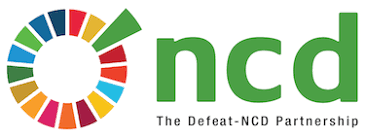The NB Global Sustainable Equity team is looking for high- quality companies that have the potential to be transition winners. As the population ages, non-communicable diseases such as diabetes account for an increasing proportion of healthcare costs. In the Access to Healthcare value chain, we look for companies that can expand patients’ access to care at an affordable price. Novo Nordisk, a leading Danish biopharmaceutical company founded in 1923, offers safe and efficacious drugs to help people who suffer from diabetes and obesity.
Diabetes refers to a dysfunction in the body’s regulation of sugar levels in the blood. The International Diabetes Federation estimates that the number of diabetics will grow from 463 million in 2019 to 700 million by 2045. Obesity, which is generally defined as excess body fat leading to a Body Mass Index level above 30, affects even more people—650 million and counting, globally. These two are related metabolic diseases. Other common comorbidities include heart problems, high blood pressure and high cholesterol. Our holding, Novo Nordisk, is the world’s largest manufacturer of insulin, a life-saving drug for diabetics. It offers solutions to 32 million patients worldwide with highly efficacious drugs, such as Ozempic and Wegovy, which can lower blood sugar levels, deliver weight loss, and provide heart benefits.
As an Environmental, Social and Governance (ESG) investor, we believe that Novo’s sustainability efforts lead the Big Pharma industry. Amid discussions on high drug pricing, Novo Nordisk has a strong commitment on access to insulin, including a range of affordability initiatives in different countries. For human insulin, the company has set a price cap of $25 per vial in the U.S., benefitting more than half a million Americans. The company has committed to a maximum price of $3 per vial in 76 Least Developed Countries (LDCs), benefitting over 6.4 million diabetics. Novo Nordisk contributes to access and affordability of healthcare, creating a positive impact around the world.
Many other challenges hinder access to care, especially for the working poor in poor countries. Unlike typical drug-makers, Novo goes a step further in addressing many of these challenges, by building the local healthcare infrastructure in four African countries as part of its “Base of the Pyramid” program: Kenya, Ghana, Nigeria and Senegal. Novo partners with local governments and institutions to provide low-cost insulin at the point of prescription (ensuring supply), to train healthcare professionals (raising physician awareness) and to provide test strips to measure blood glucose level (improving monitoring and adherence rate). The effectiveness of this program has been independently analysed by University College London (UCL). We engaged with Novo to gain assurance that “Base of the Pyramid” is a financially self-sufficient program, not only to assess its potential impact on shareholders, but, more importantly, to ensure that it contributes to genuinely sustainable development rather than being just a short-term philanthropic exercise. The challenge from here is to scale it up to more countries. We look forward to more news from Novo Nordisk on how it can reach more patients, which should in turn increase productivity for the world’s economy.
 |
Affordable Human insulin in low and middle income countries- As of 1 August 2020, ceiling price reduced to 3 USD per human insulin vial in 76 low and middle income countries - Access to Insulin Commitment is promise of low-cost human insulin |
Although environmental materiality factors are less relevant for healthcare companies, Novo has demonstrated strong management on emissions. All production sites have been using renewable power only since 2020. It has a zero CO₂ emission target from operations and transportation by 2030. The company has managed to maintain steady emissions, and substantially limit the growth of its waste, water usage and energy usage despite more than doubling sales in the last 10 years.
Novo Nordisk sales and consumption development in production

Source: Novo Nordisk, November 2020.
Sustainability is not just about carbon emissions, especially for healthcare companies. It is also about doing good to society, bringing positive social change. By extending access to care to people, at an affordable cost, labour productivity should increase, ultimately driving economic growth. The NB Global Sustainable Equity team invests in well-positioned companies like these, which can do good for investors as well as society.








